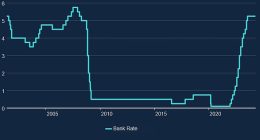Mania and depression can set in very quickly after a baby is born but care across the UK is patchy
Orlaith Quinn was an outgoing, vivacious mother of two until halfway through her third pregnancy, when she became uncharacteristically withdrawn. She raised her anxiety in checkups, but doctors told her this was normal. When she became manic after giving birth and told her family she had tried to kill herself three times, she was assessed by a psychiatrist who determined she was not a suicide risk.
Quinn had developed postpartum psychosis, which has good recovery rates, but an inquest determined earlier this year that her death in late 2018 at Belfast’s Royal Jubilee maternity hospital was “both foreseeable and preventable”.
Her husband, Ciaran, believes that if the hospital had a specialist mother and baby unit, “the culture in the hospital would have been different”, and staff would have been more aware of and experienced in dealing with perinatal and postnatal mental health problems.
“It’s an absolute crime Northern Ireland doesn’t have a mother and baby unit – there are various in England, Wales and now Scotland. Why did the women here not have that service – why should women here suffer? Why are they not treated as equal? Why don’t they have the same services when we’re governed by the same people? It blows my socks off,” he said.



